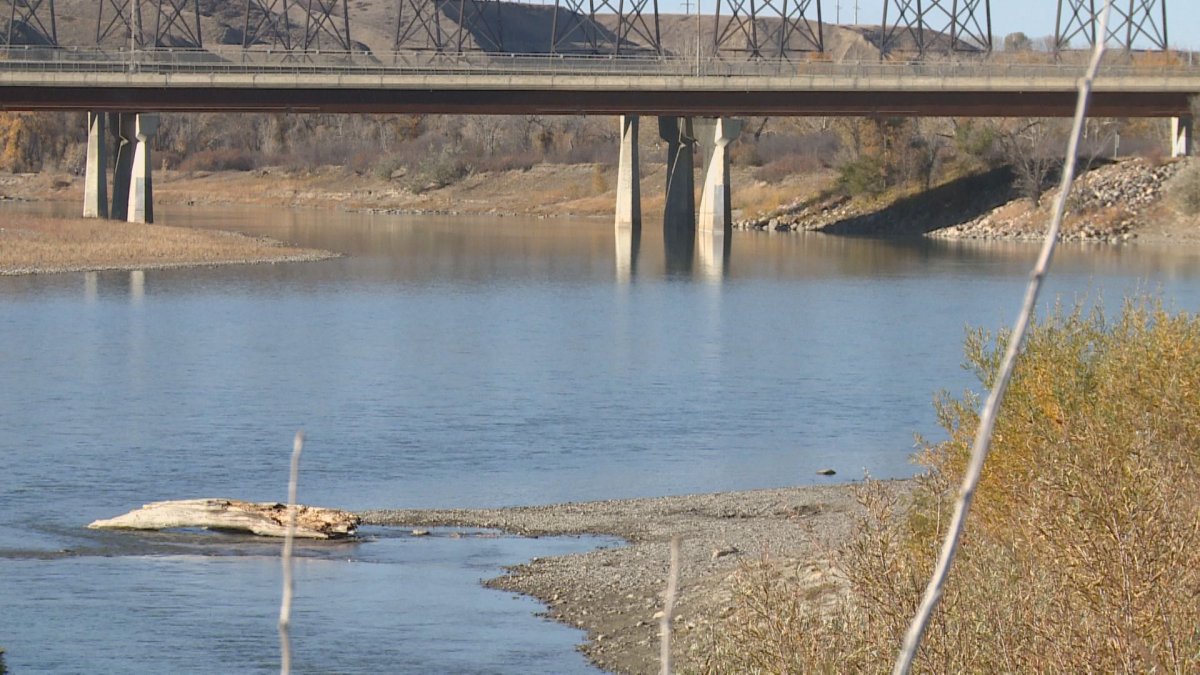As Autumn wanes on, those walking past the Oldman River in Lethbridge may have noticed the water isn’t as plentiful as it usually is.

According to experts, the province’s hot and dry summer is partially to blame.
“The current condition in the Oldman River is that it is lower than normal, but it’s not very low yet,” explained Stefan Kienzle.
“The current level is about a one-in-five-year level, so this level happens roughly every five years.”
Kienzle, a professor in the geography and environment department at the University of Lethbridge, is a hydrologist who does work on how climate change impacts water resources.
“The problem that we’ll see of course — and we have experienced this especially this year — when you remember the polar vortex in the late winter, and then of course followed by the heat dome that we all suffered from, it’s this really really strong variation of weather events that will put stress on the ecosystem,” he said.

He added the biggest threat facing southern Alberta’s weather and climate is a multi-year drought.
“We don’t know when that will happen. Is this the beginning of one or not?”
When it comes to the species living in and around the water, the low water levels aren’t going unnoticed.
Norine Ambrose, the executive director with the Alberta Riparian Habitat Management Society (Cows and Fish), said while the current levels of the river aren’t unheard of, they are cause for concern.
“It’s harder on plants. Obviously, things that live in an aquatic ecosystem need water, and when there’s less water, there’s less space, there’s less food, it gets (warmer or colder) faster.”
Ambrose added there would be benefits to a large amount of snowfall in the coming months to helping those affected species.
“Basically, more water is needed for these aquatic ecosystems to survive,” she said.
“Whether it’s rain or snow melt, that’s a pretty important thing to bring up those water levels.”
Both experts are reminding the public to be aware of their water usage, despite its seemingly minimal impact.
“We have to be reminded that we live in a water-scarce region, and we have to respect the amount of water that we have,” Kienzle said.
“People often don’t really think that they have a direct effect on the water level,” she said. “But the water you use in your household is important too. Every little bit less we use leaves more for the aquatic ecosystem.”


Comments